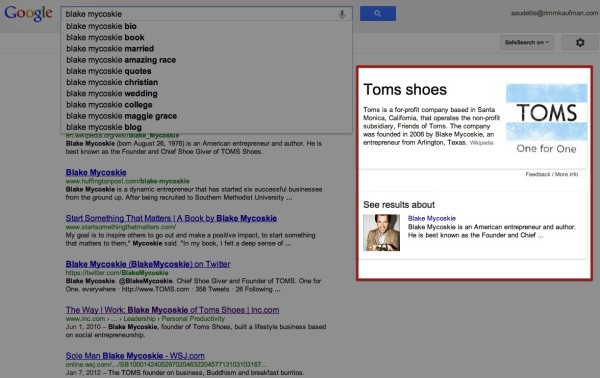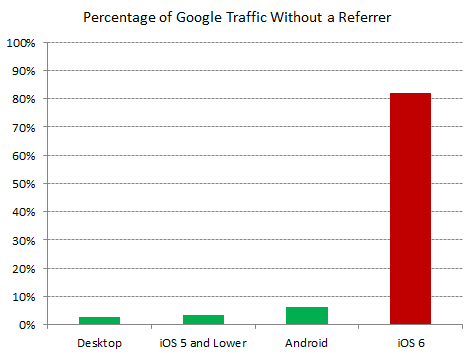The Paradox Of New Vs. Old SEO
SEO is at a crossroads. Everything in the search industry is continually changing: Google is rolling out new algorithms, tools, and products; Bing is partnering with Facebook in ever more interesting ways; SEO toolsets are being forced to change their approach; and techniques used by SEOs are continually being re-visited to test their validity. Yet, […]
SEO is at a crossroads.
Everything in the search industry is continually changing: Google is rolling out new algorithms, tools, and products; Bing is partnering with Facebook in ever more interesting ways; SEO toolsets are being forced to change their approach; and techniques used by SEOs are continually being re-visited to test their validity.
Yet, there’s a paradox that exists amidst this feverish pace of change: classic, boring, “old SEO” is still what works best.
Now, before you publicly flagellate me for sounding off with such sacrilegious puffery, please continue reading.
Signs Of Evolution
There are, no doubt, some striking developments in search. Primarily the result of Google’s relentless pursuit of innovation (in the quest to seek ever higher profits while delighting users, a balance they teeter on from time to time), the search we see today may resemble that of 2010 superficially, but it is a different animal.
Google’s shopping blend is now paid, PLAs account for nearly 30% of non-brand paid search for e-commerce sites, Panda and Penguin dwelt a one-two punch to short-term SEO and paid links, and we see glimpses of the future in authorship, Google+ and the Knowledge Graph.
The Knowledge Graph, in particular, certainly points to a future far different in how Google may score pages.
Ranking Entities & Their Aspects
RKG has seen the influence of Google’s a priori knowledge of people, places, and things (known as entities) on Web search results. These entities have certain aspects associated with them. These aspects can be used to inform how a SERP is built, a method of ranking beyond the classic PageRank model of webpages and links.
For example, we know that Blake Mycoskie is the founder of TOMS Shoes, has a non-profit, is married, is a Christian, etc. Influencing a search result for a Blake Mycoskie query is made much more difficult if Google understands certain realities about him, because rather than just trying to shuffle results up and down the page with link tactics, SEOs would, in fact, have to change reality to change the SERP. This has serious ramifications for online reputation management work, notably for celebrities.
Social Search
Bing continues to be the leader in integrating search and social media, pulling data from nearly every major social network in a ‘separate but integrated’ presentation. Why doesn’t Bing get more attention for this? For one thing, it’s hard to change deeply conditioned habits.
There’s another problem, too, with their strategy: no one actually knows if integrated search and social media have value. There’s a lot of interest in the theory, but the practical application of combining search and social media is still nascent. We haven’t seen if the users care. (It’s mostly us marketers who are excited.) Yes, Bing has increased marketshare, but it’s still just a few ticks over 16%.
Google takes a very different approach to search and social integration. Rather than embrace the social Web and partner with Facebook and others, Google+ represents a proprietary “social layer” that pervades Google search results and integrates with all of Google. Google+ is Google, and Google is Google+.
I grant that Facebook’s Graph Search is very cool, but no one’s sure what it will become. Signs point to the potential for a disruptive approach to search as we know it or, at least, a useful tool if you’re looking for single women nearby who enjoy getting drunk and like men. Only kidding…
Facebook has serious data and there is immense power in Graph Search for marketers. But, the powerfully revealing queries one can perform on Graph Search help to illuminate a whole universe of unsolved problems with social search.
Mobile
Mobile is increasingly playing a big role in the future of search. In fact, global mobile traffic is nearing 15%; roughly 20% of our clients’ traffic is now mobile. With varied behaviors based on the device, smart marketers need to be thinking in ever more sophisticated ways about how to serve content on smartphones, mobile phones and tablets. And, guess what, Google just changed the game on that for paid search, while the iOS6 hidden traffic problem is still not widely known by SEOs.
The Old Stuff Works
The acceleration of mobile is actually a very good example of how so-called old SEO techniques remain especially relevant today. The complexity around handling mobile content and SEO is not trivial.
Google lists useful documentation covering three basic approaches. Technical SEO expertise is key in order to successfully understand and deploy any of these approaches. And beyond that, it takes technical SEO to understand when a Google best practice could potentially create a sub-optimal user experience for your site.
Technical SEO remains the foundation of quality, comprehensive organic work. In this era of less is more SEO, our teams consistently move the need for companies by getting their house in order: pagination, duplicate content, faceted navigation, internal linking, mobile sites and site search are a few of the major technical areas needing attention. This is important work that most every large online business can justify.
Panda’s classification of Web content has magnified the need to create compelling, engaging content that users find valuable. While the emerging field of content strategy is new and exciting, the idea of building great content is nothing new. After all, Bill Gates proclaimed that content is the key back in early 1996.
Social media has the potential to drastically change the game of SEO (and with it, online marketing). Social media is powerful and here to stay. However, just when it changes the game of SEO is anyone’s guess.
In fact, links remain the single most important off-page ranking factor for Google (as Matt Cutts has insinuated). SearchMetrics’ study of ranking factors placed backlinks second only to Facebook Shares. While on the surface, this seems to suggest the influence of Facebook metrics over Google’s ranking factors; deeper thinking makes it apparent that popular content — which tends to gather more links — is also correlated with high Facebook activity. SearchMetrics’ conclusions are very much in line with those of experienced SEOs: links are still gold.
It must be granted that Bing’s approach to ranking pages marks a clear distinction from Google’s, specifically in how they are actively using social signals in their algorithms. We’re encouraged by Bing and their innovation and hope it leads to increased adoption and marketshare for Bing.
Back To The Future: Panda & Penguin
Google’s Panda and Penguin updates fundamentally changed the game for SEOs. Panda handily demolished thin content and the strategy of scaling infinite thin, poor-quality pages supported by an authoritative domain. Penguin cleanly discounted many manipulative links. The irony of these two massive updates is the way in which they reinforced the “old SEO” approach so many of us never stopped believing in.
Panda made high quality content and happy users matter more for SEO. Penguin made relevant, topical and useful links matter more than anchor-text stuffed spam. Ready the flux capacitor for 2009 because that’s pretty close to where we were back then, too.
SEO At A Crossroads
There’s a paradox in our work today: what’s coming is amazing (Knowledge Graph, Graph Search), what’s here is changing more rapidly than ever (authorship and rel publisher), and what’s always worked still works.
That’s why it’s called sustainable SEO. Much of the SEO industry suffers from “shiny new object” syndrome, always curious about the Next Big Thing. I don’t blame us for it. Things change so rapidly, it’s a bit of a professional ailment. We just need to remember: the more things change the more they stay the same.
I’d love to continue the conversation at SMX West. I’m speaking on three panels: Getting Ahead with Google+, Is Link Building Still Crucial? and Pagination & Canonicalization for the Pros. Come find me and let’s discuss.
More relevant reading:
- Old SEO Tools vs. New SEO Tools, Matt McGee
- Old vs. New SEO, Shari Thurow
- Super Valuable Old Stuff, Wil Reynolds
Contributing authors are invited to create content for Search Engine Land and are chosen for their expertise and contribution to the search community. Our contributors work under the oversight of the editorial staff and contributions are checked for quality and relevance to our readers. The opinions they express are their own.
Related stories
New on Search Engine Land


